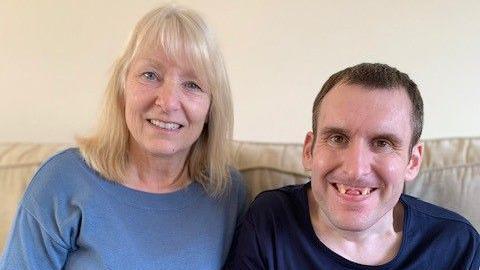Supermarkets can help autistic people, study says

Supermarkets are one of the most disabling sensory environments for autistic people, researchers have said
- Published
Bright lights, loud noises and changing temperatures are among the issues making trips to the supermarket difficult for autistic people, researchers have said.
The University of Reading has launched a guide offering six principles to make shopping more autism-friendly, such as reducing background music and providing designated quiet areas.
The researchers said it comes after years of studying why autistic people find supermarket environments challenging.
Lecturer in psychology Dr Cathy Manning, who is leading the project, said retailers “really need to up their game".
Supermarkets are losing about £13.5m in weekly revenue which is more than £700m a year due to autistic people avoiding them, the researchers said.
The research included a series of focus groups and created a full-size model of a supermarket to trial different approaches to reducing sensory overload.
Tara Cooke, who contributed to the guide, said: “Going out shopping is a regular part of most people’s lives, but as an autistic person I sometimes find the experience to be difficult or impossible.
“I can find supermarkets loud, confusing and frustrating, and I often rush through just to get the essentials before leaving, or put off going altogether.”
Ms Manning said: “Supermarkets and other retailers really need to up their game to better meet the needs of autistic and neurodivergent people.
“Having ‘quiet hours’ is a good first step but does not go nearly far enough to support autistic people in their stores.”
The new guide “demonstrates how small changes in a range of areas could improve the experiences of autistic shoppers and employees in supermarkets,” she added.
Follow BBC South on Facebook, external, X (Twitter), external, or Instagram, external. Send your story ideas to south.newsonline@bbc.co.uk, external or via WhatsApp on 0808 100 2240, external.
- Published18 April 2024

- Published17 April 2024

- Published16 April 2024
